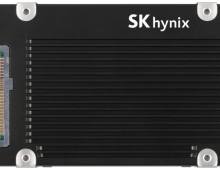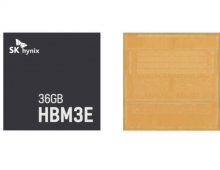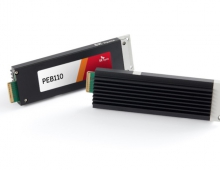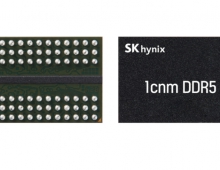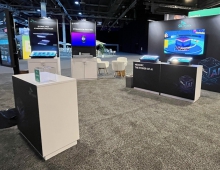
Elpida Develops 4-Gigabit DDR2 Mobile RAM For Smart phones
Elpida Memory, Inc. said on Thursday it has developed a 4-gigabit
DDR2 Mobile RAM that employs 30nm process.
This new Mobile RAM features a low operating voltage of 1.2V,
achieves a 1066Mbps high-speed data transfer rate, and uses roughly
30% less operating current compared with stacking two of Elpida's
40nm 2-gigabit products. Through sophisticated circuit design and
advanced process technology, this product achieves the world's
smallest class in chip size for a 4-gigabit LPDDR2, according to the
Japanese memory maker.
With the new mobile RAM, Elpida joins bigger rival Samsung Electronics as the only producers of the large capacity power-saving memory chips.
Currently, the rapidly expanding market for smart phones and tablet PCs is striving to expand the features of its operating systems. As a result, the ideal density of DRAMs is also rapidly on the rise, and there is an increasing need for high density DRAMs - 8-gigabit for high-end smart phones and 16-gigabit for high-end tablet PCs. At the same time, there is a strong demand for smaller, thinner, and lighter DRAM packages, and attention is being focused on advanced package technologies such as Package on Package (PoP) and Multi Chip Package (MCP).
Elpida plans to ship the new DDR2 Mobile RAM as PoP, FBGA packages, and as a bare chip for MCPs. The company's PoP and FBGA packages leverage die-stacking technology to provide a line-up of 8-gigabit to 16-gigabit products. The new 4-gigabit DDR2 Mobile RAM achieves the thinnest package yet at 0.8mm (in the case of an 8-gigabit product consisting of two stacked 4-gigabit chips), which meets the need for DRAM that is not only higher density, but also thinner packages.
Sample shipments of the new 4-gigabit DDR2 Mobile RAM will begin in April, and mass production is scheduled to start at Elpida's Hiroshima Plant in June of this year. Production is also planned at Rexchip Electronics Corporation in order to guarantee a stable product supply.
The Nikkei business daily also said buyers of the chip would include Apple.
With the new mobile RAM, Elpida joins bigger rival Samsung Electronics as the only producers of the large capacity power-saving memory chips.
Currently, the rapidly expanding market for smart phones and tablet PCs is striving to expand the features of its operating systems. As a result, the ideal density of DRAMs is also rapidly on the rise, and there is an increasing need for high density DRAMs - 8-gigabit for high-end smart phones and 16-gigabit for high-end tablet PCs. At the same time, there is a strong demand for smaller, thinner, and lighter DRAM packages, and attention is being focused on advanced package technologies such as Package on Package (PoP) and Multi Chip Package (MCP).
Elpida plans to ship the new DDR2 Mobile RAM as PoP, FBGA packages, and as a bare chip for MCPs. The company's PoP and FBGA packages leverage die-stacking technology to provide a line-up of 8-gigabit to 16-gigabit products. The new 4-gigabit DDR2 Mobile RAM achieves the thinnest package yet at 0.8mm (in the case of an 8-gigabit product consisting of two stacked 4-gigabit chips), which meets the need for DRAM that is not only higher density, but also thinner packages.
Sample shipments of the new 4-gigabit DDR2 Mobile RAM will begin in April, and mass production is scheduled to start at Elpida's Hiroshima Plant in June of this year. Production is also planned at Rexchip Electronics Corporation in order to guarantee a stable product supply.
The Nikkei business daily also said buyers of the chip would include Apple.

